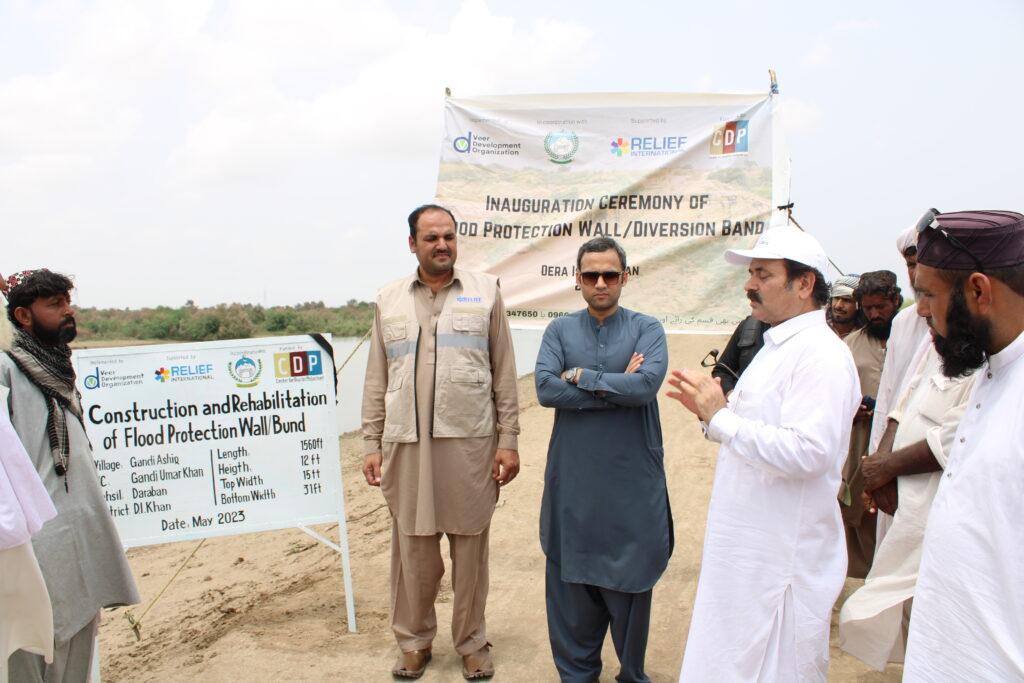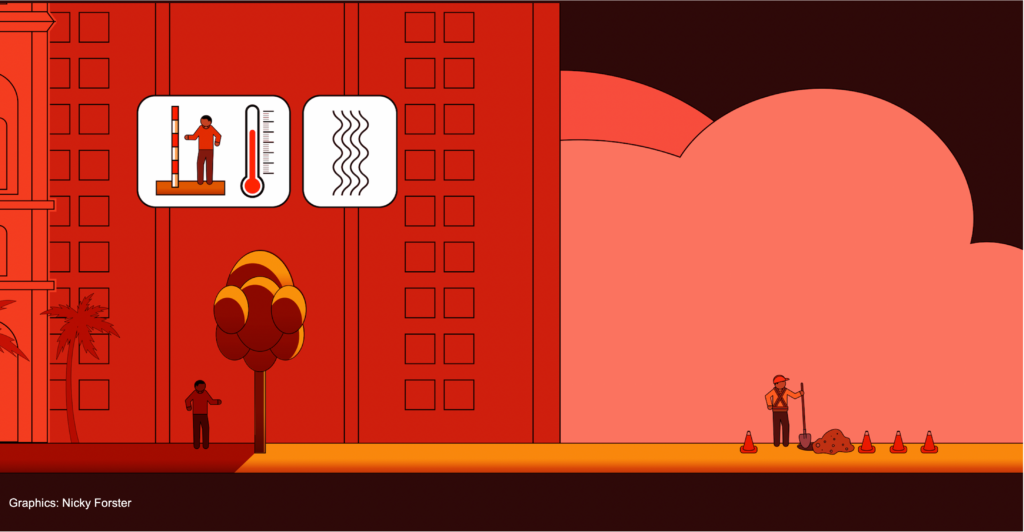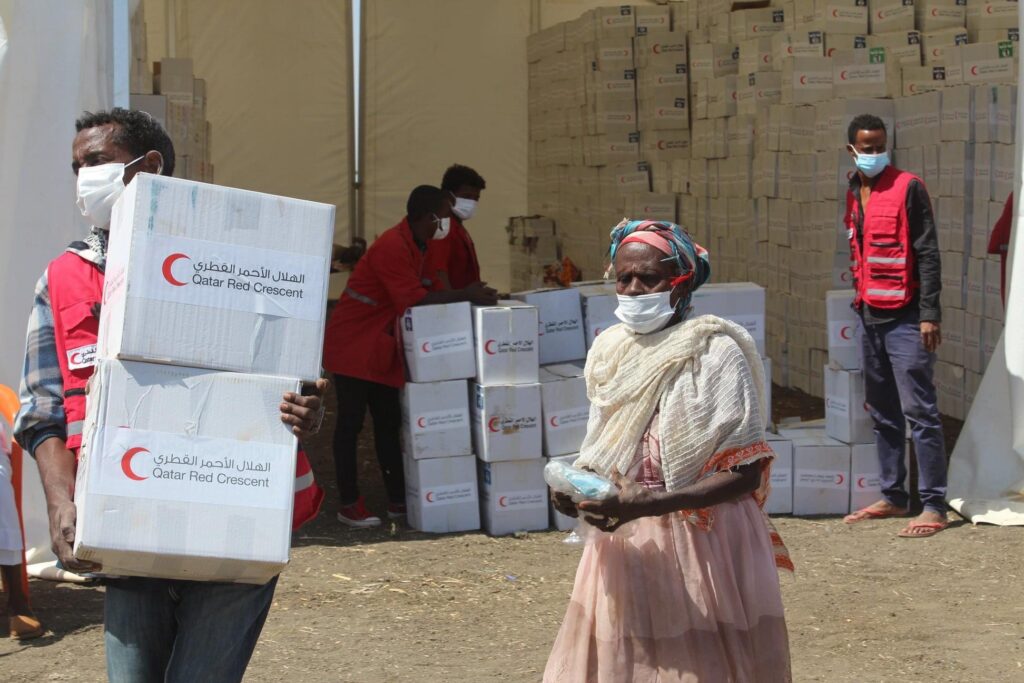REBUILDING FLOOD PROTECTION WALLS IN PAKISTAN
About Project In this project, funded by the Center of Disaster & Philanthropy (CDP), Relief International (RI) rebuilt three Flood Protection Walls in District Dera Ismail Khan, to save more than 11,000 flood affectees from future floods. The walls also irrigate over 22000 kanals of dry land, helping local farmers. The project used local materials […]
REBUILDING FLOOD PROTECTION WALLS IN PAKISTAN Read More »



